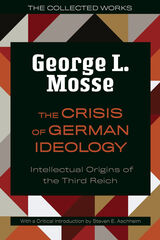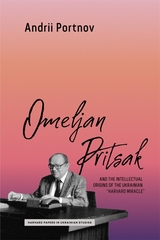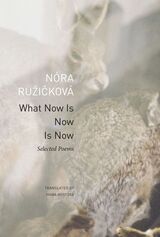
George L. Mosse (1918–99) was a legendary scholar, teacher, and mentor. A refugee from Nazi Germany, in 1955 he joined the Department of History at the University of Wisconsin–Madison, where he was both influential and popular. Mosse was an early leader in the study of modern European cultural and intellectual history, fascism, and the history of sexuality and masculinity. Over his career he authored more than two dozen books.

A landmark account of the origins of American slavery, revealing how ancient Roman ideas were used to defend the establishment of a slave empire in the English Atlantic world.
The period from 1550 to 1700 was critical in the development of slavery across the English Atlantic world. During this time, English discourse about slavery revolved around one central question: How could free persons be made into slaves? John Samuel Harpham shows that English authors found answers to this question in a tradition of ideas that stretched back to the ancient world, where they were most powerfully expressed in Roman law. These ideas, in turn, became the basis for the earliest defenses of American slavery.
The Roman tradition had located the main source of slavery in war: enslavement was the common fate of captives who otherwise faced execution. In early modern England, this account was incorporated into studies of the common law and influential natural rights theories by the likes of Hugo Grotius and John Locke. When Europeans started to publish firsthand accounts of Africa in the sixteenth century, these reports were thus received into a culture saturated with Roman ideas. Over time, English observers started to assert that the common customs of enslavement among the nations of Africa fit within the Roman model. Englishmen had initially expressed reluctance to take part in the Atlantic slave trade. But once assured that the slave trade could be traced back to customs they understood to be legitimate, they proved keen to profit from it.
An eloquent account of the moral logic that propelled the development of an immoral institution, The Intellectual Origins of American Slavery reveals the power of an overlooked tradition of ideas in the history of human bondage.

Omeljan Pritsak and the Intellectual Origins of the Ukrainian “Harvard Miracle” is the first English-language intellectual biography of Omeljan Pritsak, the co-founder of the Harvard Ukrainian Research Institute and the first professor of Ukrainian history at Harvard. Andrii Portnov places Pritsak’s life and legacy in the context of Ukrainian and world historiography and illuminates the development of his scholarly interests, which emerged in interwar Poland and developed through the Sovietization of Western Ukraine and the perturbations of World War II. His scholarship ranged from German Oriental Studies in the 1940s and 1950s to North American Slavic studies to the international studies of the origins of Rus´. Pritsak’s trajectory unfolds as he faces the challenges of establishing the field of Ukrainian studies in North America while engaging with influential scholars such as Dmytro Čyževskyj, Roman Jakobson, Ivan Krypiakevych, Oleksandr Ohloblyn, and Natalia Polonska-Vasylenko.
Based on unique materials Portnov uncovered in several German archives, this concise study serves as an invitation to reassess the intellectual history of Ukrainian history. Containing unique, previously unpublished photographs from Pritsak’s personal collection at the Kyiv-Mohyla Academy, this book sheds light on the life and work of the enigmatic figure of Omeljan Pritsak—one of the most prominent, controversial, and multifaceted historians of Ukraine, Central Europe, and the Turko-Osmanic and Mongol worlds.
READERS
Browse our collection.
PUBLISHERS
See BiblioVault's publisher services.
STUDENT SERVICES
Files for college accessibility offices.
UChicago Accessibility Resources
home | accessibility | search | about | contact us
BiblioVault ® 2001 - 2025
The University of Chicago Press









